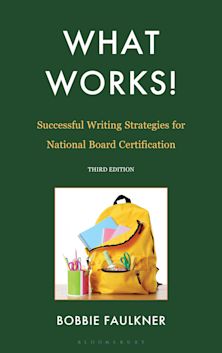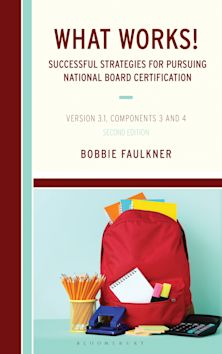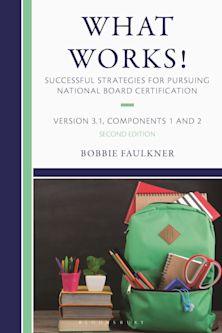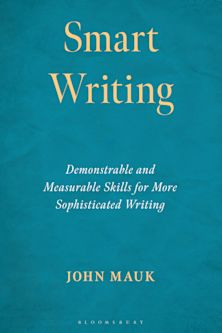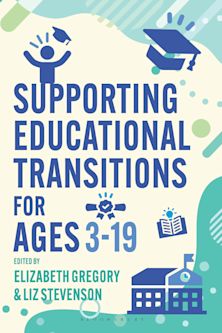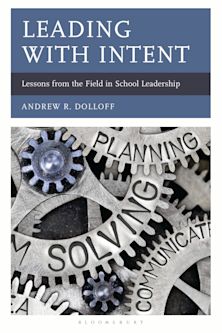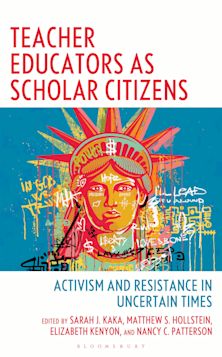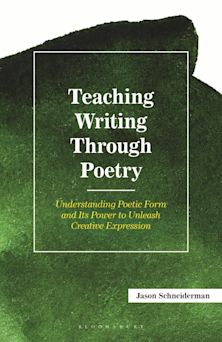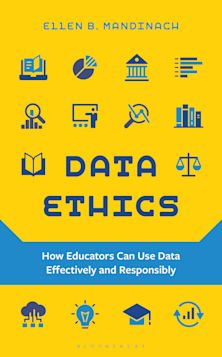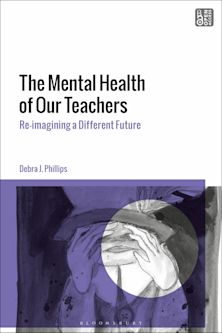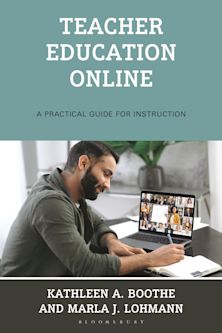- Home
- ACADEMIC
- Education
- Teacher Education
- Connecting Teaching and Learning
Connecting Teaching and Learning
History, Evolution, and Case Studies of Teacher Work Sample Methodology
Hilda Rosselli (Anthology Editor) , Mark Girod (Anthology Editor) , Meredith Brodsky (Anthology Editor) , Ronald A. Beghetto (Contributor) , Karen S. Buchanan (Contributor) , Barbara Chesler Buckner (Contributor) , Diane S. Calhoun (Contributor) , Kyle Dahlem (Contributor) , Peter Denner (Contributor) , Emerson J. Elliott (Contributor) , C Samuel Evans (Contributor) , Tracy Fredman (Contributor) , Russell L. French (Contributor) , Gerald Girod (Contributor) , Mark Girod (Contributor) , John E. Henning (Contributor) , David Imig (Contributor) , Scott Imig (Contributor) , Mary Johnson (Contributor) , Frank W. Kohler (Contributor) , George E. Malo (Contributor) , Kathleen McKean (Contributor) , Jack Newsome (Contributor) , Julie Newsome (Contributor) , Antony Norman (Contributor) , Roger Pankratz (Contributor) , Ray Pecheone (Contributor) , Victoria L. Robinson (Contributor) , Hilda Rosselli (Contributor) , Linda Samek (Contributor) , Del Schalock (Contributor) , Mark Schalock (Contributor) , Gary J. Skolits (Contributor) , Douglas W. Smith (Contributor) , Ruth Chung Wei (Contributor) , Karen S. Wetherill (Contributor)
Connecting Teaching and Learning
History, Evolution, and Case Studies of Teacher Work Sample Methodology
Hilda Rosselli (Anthology Editor) , Mark Girod (Anthology Editor) , Meredith Brodsky (Anthology Editor) , Ronald A. Beghetto (Contributor) , Karen S. Buchanan (Contributor) , Barbara Chesler Buckner (Contributor) , Diane S. Calhoun (Contributor) , Kyle Dahlem (Contributor) , Peter Denner (Contributor) , Emerson J. Elliott (Contributor) , C Samuel Evans (Contributor) , Tracy Fredman (Contributor) , Russell L. French (Contributor) , Gerald Girod (Contributor) , Mark Girod (Contributor) , John E. Henning (Contributor) , David Imig (Contributor) , Scott Imig (Contributor) , Mary Johnson (Contributor) , Frank W. Kohler (Contributor) , George E. Malo (Contributor) , Kathleen McKean (Contributor) , Jack Newsome (Contributor) , Julie Newsome (Contributor) , Antony Norman (Contributor) , Roger Pankratz (Contributor) , Ray Pecheone (Contributor) , Victoria L. Robinson (Contributor) , Hilda Rosselli (Contributor) , Linda Samek (Contributor) , Del Schalock (Contributor) , Mark Schalock (Contributor) , Gary J. Skolits (Contributor) , Douglas W. Smith (Contributor) , Ruth Chung Wei (Contributor) , Karen S. Wetherill (Contributor)
This product is usually dispatched within 1 week
- Delivery and returns info
-
Free US delivery on orders $35 or over
You must sign in to add this item to your wishlist. Please sign in or create an account
Description
As accountability in education has become an increasingly prominent topic, teacher preparation programs are being asked to provide credible evidence that their teacher candidates can impact student learning.
Teacher Work Samples, first developed 30 years ago, have emerged as an effective method of quantifying the complex set of tasks that comprise effective teaching and documenting the effectiveness of preservice teachers' impact on student learning. Hilda Rosselli, Mark Girod, and Meredith Brodsky, editors of Connecting Teaching and Learning, have assembled case studies from ten universities and insights from key policy leaders. Now implemented in more than 200 colleges and universities across the country as well as in Scotland and Chile, a preponderance of new evidence is evolving from the use of Teacher Work Samples in various venues that is expanding the field's knowledge in areas of practice, research, and policy. This volume also includes a chapter by the forerunner of Teacher Work Sample theory, Del Schalock, with his thoughts about remaining theory development needed to effectively link teacher preparation and student learning. Furthermore, Connecting Teaching and Learning provides practical advice on implementing Teacher Work Samples and is a must-have resource for all educators alike.
Table of Contents
Foreword
Introduction
Section 1. Context and Evolution
Chapter 1. Teacher Work Sample Methodology at Western Oregon University
Section II. Practice
Chapter 2. Answering the Call: How do we know they can teach?
Chapter 3. The Development, Implementation, and Institutionalization of The Renaissance Teacher Work Sample Model
Chapter 4. Preparing Principals to Use the Teacher Work Sample in Their Schools
Chapter 5. Connecting Teaching and Learning: Teacher Work Samples in a Partnership Context
Chapter 6. Practicing connecting teaching and learning using the Cook School District simulation
Chapter 7. Sowing the Seeds of Multi-institutional Collaborative Research: A Case Study
Section III. Research
Chapter 8. Using TWS Methodology to Establish Credible Evidence for Quality Teacher Preparation
Chapter 9. Generalizability of Teacher Work Samples Across Occasions of Development
Chapter 10. Research on First and Second Year Teachers Using the TWSM and Pathwise Observation Form B
Chapter 11. Contextualizing the Teacher Work Sample: An Evolving Early Childhood Perspective
Chapter 12. Using Teacher Work Sample Data for Program Improvement
Section IV. Policy
Chapter 13. "Student Learning" in Accreditation
Chapter 14. Teacher Work Samples in Louisiana's Teacher Assistance and Assessment Program
Chapter 15. The Performance Assessment for California Teachers: A Policy Case Study of Teacher Work Sampling
Reflections
Chapter 16. Connecting Teaching, Teacher Preparation And Student Learning: Education's Equivalent In Theory Development And Research To Biology's Genome Agenda
About the Contributors
Index
Product details
| Published | Jan 16 2011 |
|---|---|
| Format | Hardback |
| Edition | 1st |
| Extent | 252 |
| ISBN | 9781442204584 |
| Imprint | Rowman & Littlefield Publishers |
| Dimensions | 9 x 6 inches |
| Publisher | Bloomsbury Publishing |
About the contributors
Reviews
-
This book provides important insights on how Teacher Work Samples, widely adopted by NCATE accredited institutions, have helped teacher candidates learn how to employ data driven teaching decisions that enhance student achievement. The authors also show how the evolution of Teacher Work Samples has led to significant changes and improvements in teacher and administrator preparation programs.
Jim Cibulka, president, NCATE
-
Del Schalock had a wonderful idea more than thirty years ago-the use of structured teacher work samples to connect teaching to evidence of student learning-and devoted the rest of this career to inspiring and leading a gifted group of colleagues across the country to develop, expand, apply and repair those approaches for the improvement of teacher education and professional development. This book gathers together much of that work and other efforts it inspired in a volume that will be valuable to teacher educators and policy makers.
Lee S. Shulman, president, The Carnegie Foundation for the Advancement of Teaching
-
This work is more important than ever as teacher preparation continues to strengthen assessment of teachers' ability to help students learn.
Joanne Arhar, associate dean and director of teacher education, Kent State University
-
Hundreds of our teacher candidates have been able to use Teacher Work Samples (TWS) to successfully demonstrate the impact of their teaching on student learning. What is even more exciting is hearing from our graduates who continue to use the TWS as practicing teachers.
Jane Bray, dean for the school of education, Millersville University of Pennsylvania
-
The authors' insights on practice, policy, and research related to Teacher Work Samples are particularly timely as AACTE seeks to strengthen linkages between teacher preparation and improved student performance in schools.
Sharon P. Robinson, president and CEO, AACTE
-
A powerful companion to another recently published book by Rowman & Littlefield: Improving Teacher Quality: Using the Teacher Work Sample to Make Evidence-Based Decisions.
Barry Wilson, director of assessment for the college of education, University of Northern Iowa













